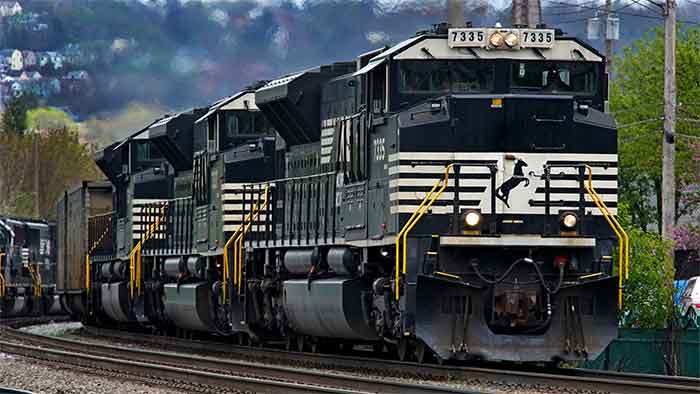
The rail strike that threatened to shut down freight traffic across the U.S. has been temporarily averted, U.S. President Joe Biden announced on Thursday.
A draft agreement by the industry and union reps reached after 20 hours of negotiations will be sent to workers for ratification after several weeks’ “cooling off” period.
“The rail workers will get better pay, improved working conditions, and peace of mind around their health care costs: all hard-earned,” Biden boasted.
Union workers will receive a 24% wage increase over the five-year period from 2020 to 2024 and a retroactive payout for the two years that have already passed under the tentative terms of the deal. The railroads have also agreed to allow unpaid days off for doctors’ appointments and other emergencies that previously came with major disciplinary repercussions.
That “brutal” attendance policy, which required workers to be on call 90% of the time, was at the heart of the dispute, and holdout unions had made it clear on Wednesday that they would not agree to any deal without concessions on the issue. The details of the agreement on attendance have not been made public yet, however.
Should the industry’s 115,000 workers have walked off the job at midnight as they had threatened to do if the industry did not heed their demands, it would have been the first railroad workers’ strike in three decades, and an especially devastating one given the ongoing inflation and supply chain crises in the U.S.. Freight rail carries 40% of the nation’s cargo, and by some estimates a rail strike would have cost the country $2 billion every day. The strike would also have disrupted passenger carrier Amtrak, which preemptively shut down its long-distance lines on Wednesday because they use track owned and operated by the freight carriers.
At the heart of the disagreement was sick leave for rail workers. Currently, rail workers are allotted zero days of guaranteed sick days, paid or unpaid. Unions were trying to gain 15 days of paid sick days but were unable to secure that concession. Instead, they will now be able to attend preventive medical care and will not be punished for using unpaid leave for medical procedures or emergencies.
The deal also includes previously agreed to pay increases, including a 24% compounded increase in pay over five years, applied retroactively to 2020, and an annual $1,000 bonus over the next five years.
That workers did not get paid sick leave is a win for the rail companies. However, the new attendance policy is a significant upgrade over what workers would have gotten if the Burr-Wicker resolution had passed and forced the union to accept the deal outlined by the Presidential Emergency Board commissioned by Biden in August.
The deal also freezes the amount workers have to contribute to their healthcare plan, ensuring rates do not rise until after the next round of negotiations.
Before the deal can be ratified, it must be approved by the rank and file members of the unions. However, rail workers have said they will not strike while the vote is being counted.
Biden’s labor secretary, Martin J. Walsh, mediated the negotiations for 20 hours on Wednesday, starting in the morning. He called Biden at 2 am to tell him he thought a deal had been reached, and Biden announced the deal at 5 am.
Biden thanked the negotiators on both sides while announcing the deal in front of the White House Wednesday morning.











































